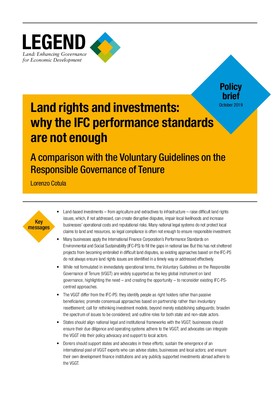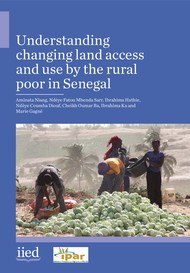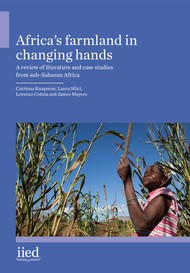Land rights and investments: why the IFC performance standards are not enough: A comparison with the Voluntary Guidelines on the Responsible Governance of Tenure
Land-based investments – from agriculture to infrastructure, extractives and manufacturing – raise difficult land rights issues. Left unaddressed, these issues can create disruptive disputes, impair local livelihoods, and increase businesses’ operational costs and reputational risks. *
Many national legal systems do not protect local claims to land and resources, and while many businesses apply the International Finance Corporation’s Performance Standards on Environmental and Social Sustainability (IFC-PS) to fill these gaps in national law, this has not sheltered projects from becoming embroiled in difficult land disputes.
While not formulated in immediately operational terms, the Voluntary Guidelines on the Responsible Governance of Tenure (VGGT) are widely supported as the key global instrument on land governance, highlighting the need – and creating the opportunity – to reconsider existing IFC-PS centred approaches. As governments, businesses and social actors appropriate the VGGT to address land rights issues in an investment context, practices are emerging to move from principles to action. One challenge is to reconsider existing approaches based on the IFC-PS in the light of advances reflected in the VGGT. To do so, it is necessary to clarify the areas in which the VGGT differ from, and add value to, the IFC-PS.~ ~This briefing note identifies such areas, drawing on a textual analysis of the IFC-PS and the VGGT, and summarising findings from more detailed research. The note first explores differences in the overall approach of the IFC-PS and the VGGT. It then pinpoints differences that relate specifically to land rights in an investment context and considers the operational implications of these. Finally, it outlines recommendations for governments, businesses, donors and social actors.
This publication has been produced under IIED’s Legal tools for citizen empowerment programme.







